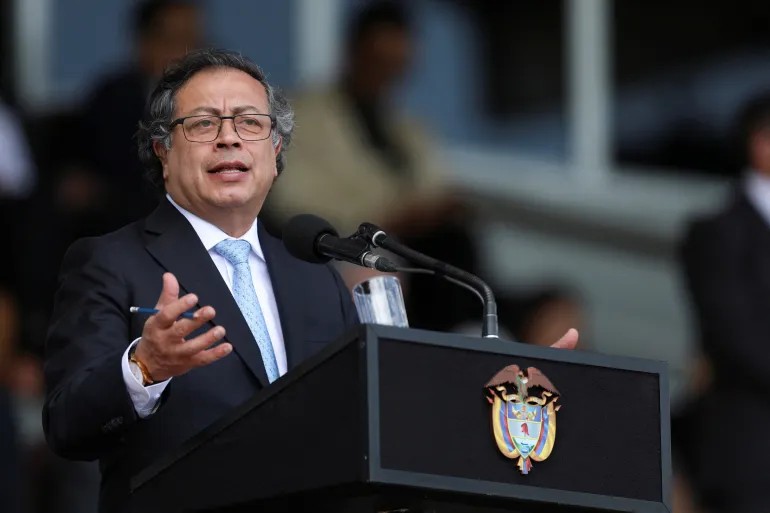
Colombian President Petro Accuses Peru of Annexing Disputed Amazonian Island

 :
| Updated On: 06-Aug-2025 @ 12:24 pm
:
| Updated On: 06-Aug-2025 @ 12:24 pmSHARE
Colombian President Gustavo Petro has reignited a longstanding territorial dispute with Peru by accusing it of unilaterally annexing the disputed Amazonian island of Santa Rosa. In a social media post, Petro criticized Peru’s recent congressional decision to designate Santa Rosa as a district within its Loreto province, calling the move a breach of bilateral treaties. He warned that this action could block the Colombian city of Leticia’s access to the Amazon River, threatening its role as a key Amazonian port and disrupting trade and travel for its nearly 60,000 residents.
The disagreement over Santa Rosa Island is rooted in nearly a century of tension between the two nations. Peru bases its claim on treaties signed in 1922 and 1929, which have allowed it to administer the island for decades. However, Colombia disputes Peru’s ownership, arguing that Santa Rosa had not yet emerged from the Amazon River at the time those treaties were signed. The Colombian government claims that the treaties clearly define the border as the deepest point of the river and that islands like Santa Rosa, which have appeared north of that line, fall within Colombia’s territory.
Petro emphasized that Peru’s legislative action to claim the island amounts to a unilateral appropriation and violates Colombia’s national sovereignty. He expressed concern that the move could isolate Leticia, not only geographically but also economically, by denying it access to the river. In response, Petro announced plans to commemorate Colombia’s independence from Spain with official celebrations in Leticia, framing the event as a symbol of resistance and national pride in the face of what he perceives as territorial encroachment.
The Colombian Ministry of Foreign Affairs backed Petro’s stance, releasing a statement via social media reaffirming that Santa Rosa has not been allocated to Peru under any recognized agreement. The ministry emphasized Colombia’s long-standing call for bilateral dialogue to determine the rightful status of newly emerged islands in the Amazon, highlighting the importance of diplomacy in resolving such sensitive disputes.
Santa Rosa is one of several islands formed by the natural processes of the Amazon River, which is among the world’s longest and most powerful waterways. Due to the river’s strong currents, sediments are frequently deposited and shifted, creating or erasing islands over time. Santa Rosa, a relatively new formation, now hosts forested land, farmland, and the small village of Santa Rosa de Yavari, which has fewer than 1,000 inhabitants. The village relies heavily on tourism due to its proximity to the Amazon River.
The Peruvian government has defended its actions, asserting that the designation of Santa Rosa as a district is necessary for proper governance. Officials argued that district status ensures access to federal funding and tax collection. In a formal statement, Peru insisted that it is complying with international law and valid bilateral treaties in its administration of the territory.
The renewed dispute highlights broader geopolitical tensions and the challenges posed by shifting geographies in river boundary regions. Both countries appear committed to asserting their claims, with Colombia focusing on diplomacy and symbolism, while Peru maintains a legal-administrative approach to consolidate its hold on the island.